confucious
TPF Noob!
- Joined
- Aug 16, 2007
- Messages
- 125
- Reaction score
- 0
- Location
- Ottawa, Canada
- Can others edit my Photos
- Photos OK to edit
First off, the OP started off with an assumption that the goal of all photographers is to represent life exactly as the eye sees it. This poses a couple of problems:
I shoot for pleasure and almost enjoy the post-processing MORE than the actual shooting. I find there is a large amount of skill and knowledge that goes into creating shots so that post-processing can create the desired effect of the photographer. The ability to judge what exposure time, depth of field, lens, and angle will create a specific image that can then be tweaked (i am talking basic contrast, white balance tools, perhpas cropping) to create a background that fades out, contains extraordinary colour, or emphasizes the foreground object, or any number of things, is a learned skill. I do not use post-processing to "save bad photos", about half my shots are taken with the post-processed (ie: tweaked) final image/result in mind - a two step approach to creating an image.
In the end, I create an image that generates a mood, inspires an emotion, or maybe just makes someone think "cool". That is enough for me.
In the end, though, to each their own.
PS - Having said all this, I shoot purely for me and purely for pleasure. Photo journalism would be a whole other argument.
- As another poster commented - the eye has a huge range that cannot be equaled by a sensor, so already a photographer is never really presenting an image true to what he/she sees as the sensor cannot match our eyes range of colour and light.
- Secondly, if we adhered strictly to this concept of exact replication (disregarding the sensors inability to replicate the beautiful imagery our eyes create) we would all need to use 50mm. lenses. Eyes don't zoom, create fish-eye effects. Believe me, I just tried and it inly made my eyeballs ache. Even if we run up to the object in question, a form of manual zoom, we do not get the effect of a telephoto lens.
I shoot for pleasure and almost enjoy the post-processing MORE than the actual shooting. I find there is a large amount of skill and knowledge that goes into creating shots so that post-processing can create the desired effect of the photographer. The ability to judge what exposure time, depth of field, lens, and angle will create a specific image that can then be tweaked (i am talking basic contrast, white balance tools, perhpas cropping) to create a background that fades out, contains extraordinary colour, or emphasizes the foreground object, or any number of things, is a learned skill. I do not use post-processing to "save bad photos", about half my shots are taken with the post-processed (ie: tweaked) final image/result in mind - a two step approach to creating an image.
In the end, I create an image that generates a mood, inspires an emotion, or maybe just makes someone think "cool". That is enough for me.
In the end, though, to each their own.
PS - Having said all this, I shoot purely for me and purely for pleasure. Photo journalism would be a whole other argument.


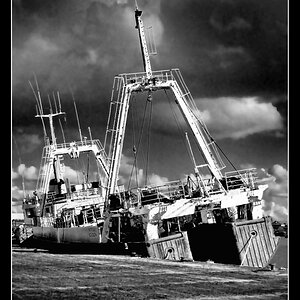
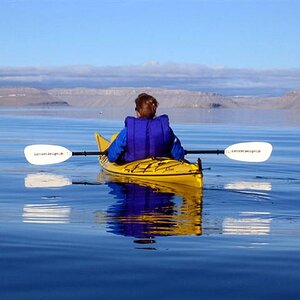
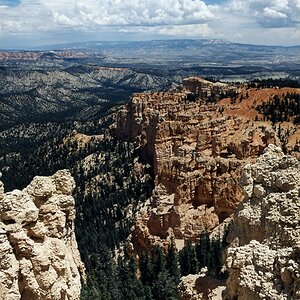
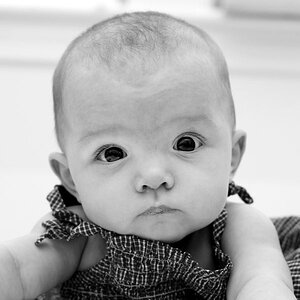
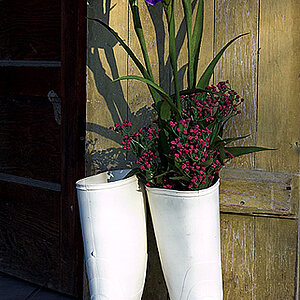
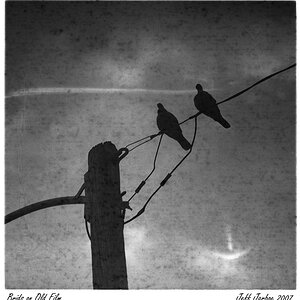
![[No title]](/data/xfmg/thumbnail/33/33360-ff0b69685c94740bde3f53b6d7aa9af1.jpg?1619735924)
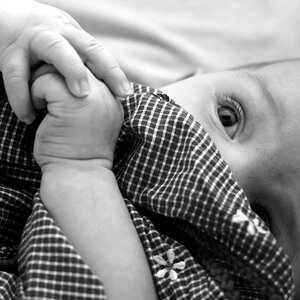
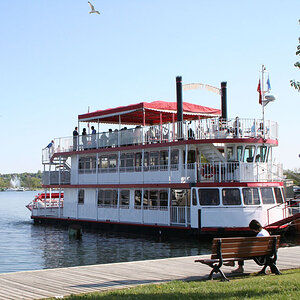

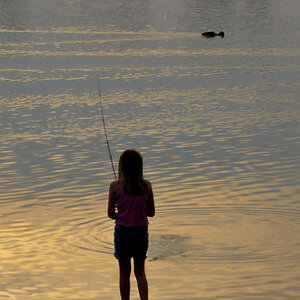
![[No title]](/data/xfmg/thumbnail/37/37522-f67b10bc5ee534f9bc21ee94917445b9.jpg?1619738129)